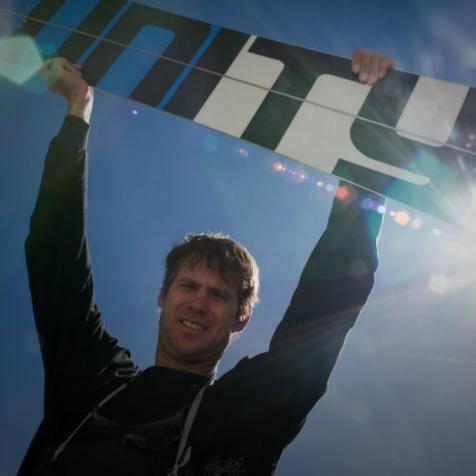
Company Details
Location
Silverthorne, Colorado
Founded
1995
Ownership Type
Private
Employees
1
Products
Snowboards
Silverthorne, Colorado
Founded: 1995
Privately owned
Employees: 1
Industry: Lifestyle & Consumer
Product: Snowboards
Founder Peter Wurster anticipates a future where small makers succeed while larger ones encounter difficulties.
Unity Snowboards takes a handcrafted approach with its high-end snowboards. "We're using unique materials and totally different design ideas than everyone else," says Wurster.
Each model is designed for different conditions; Unity's powder board, Whale, has a high camber that's set towards the tail and a flat spot ahead of a steeply upturned nose, all designed to help the rider float over deep powder.

That's a big contrast to most of the boards built in the same three or four factories in China, Wurster says. "Other than that basic outline of the board, they have a lot of the same materials in them, so the ride is basically the same. By doing them in my own shop here, I can make a truly unique product that acts and rides different."
When Wurster launched the company in the mid-'90s, snowboarding was an outlaw sport in a sea of day-glo snowsuits and only allowed at a handful of resorts. Once dominated by small craft manufacturers, the market is now mainstream. Large companies swallowed many of the small shops in an avalanche of one-fits-all mass-production.
That gives companies like Unity the ability to differentiate through quality. "I think my boards have a different feel on the snow because of the different materials that I use," says Wurster. "They're a little damper, stiffer."
He sandwiches a unique blend of aspen, maple, carbon fiber, and P-Tex and other materials together in his boards. "One of the biggest things we focussed on early on was the durability," says Wurster. "We build them in Summit County where the average local rider rides a lot and we build them for that."

The boards start at about $500 and Unity's splitboards cost about $800. "I'm really focusing on high-end boards and not trying to make a mass-market, cheap board that fits everybody," Wurster says. "My customer is a bit older, a more experienced type of rider that's looking for a high-quality board. I'm not marketing it toward the rail-jib scene, that whole deal. I do have a lot of really good halfpipe riders. I do boards for some of the team summit and USASA competitive halfpipe riders."
"The thing about building boards like I'm doing it, building in the U.S. and in the mountains in a mountain town, is the amount of people who want to buy a board for full price is really tiny," Wurster says. "It's gotten smaller over the years because there've been so many closeouts available every year, and tent sales, and Sniagrab sales. It's really shifted the business model around because people buy stuff at those sales and they're buying last year's board at cost."
"If I was selling boards for $250 or $300 that's just breaking even, and that's without paying myself," Wurster explains. "That's just paying for the heat and light." He previously had employees, but now it's just him for most of the year to keep overhead low.
Instead of trying to compete with the mass market, Unity moved to the direct-to-consumer model. "I don't even try to sell to retailers anymore," says Wurster. He does a little advertising, but depends primarily on word of mouth. "I'm doing way less volume, but making more money per board. It's way smaller, but it's more of a realistic way to survive in this business."

It also might be the future: Wurster says he thinks the industry is going to return to its craft roots. "Looking forward, I don't see how this industry can sustain huge companies like Atomic Skis or Vokl, or even frankly a huge company like Burton that has so much overhead, so many employees, and so many sales reps."
Challenges: "Global warming's effects on the industry are becoming real and I think we're starting to feel that," asserts Wurster, noting that more people are buying boards in January. "In the past, the busiest times were in November, December."
Shorter winters can also impact sales, he adds. "People are going to be using their products for less amount of time, which would mean they wouldn't necessarily need to buy as many products for the winter season".
Opportunities: "It would be a good thing for the industry to shift to small, low-overhead manufacturers," Wurster says.
Needs: Materials. "There are not enough people doing enough volume in the United States to sustain the fiberglass suppliers making the type of fiberglass that we like to use," Wurster says. "I've got a woodcore supplier getting out of it because he can't get enough volume."
